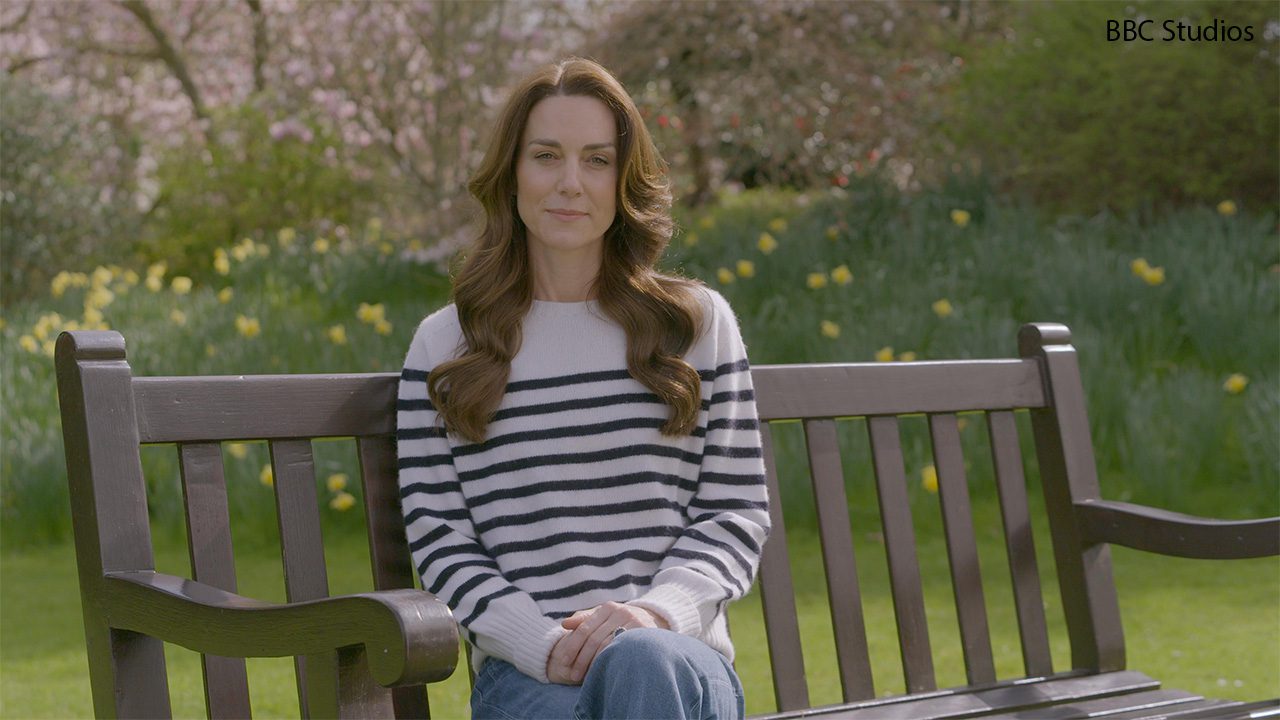Imagine having to divulge a carefully kept secret to a small group of people you love. If it’s big enough, like something life-threatening, the prospect of seeing the look on their faces once the news has been broken is enough to make you lose sleep. Now imagine having to do that with a hundred people you don’t know. Unthinkable? How about doing that in front of millions of strangers? Such was the duty that Catherine, Princess of Wales had to endure as she revealed the news about her health on March 22nd.
On that lovely British spring day, Kate revealed that she was undergoing “preventative chemotherapy” for an unspecified cancer. With her usual graceful sincerity, Kate tells us that she is “well and getting stronger everyday.” In the statement, she included thoughts for other cancer sufferers, with a reminder that they are not alone.
Kate’s decision to share her struggle with millions was a high-wire act of vulnerability performed under the scrutinizing gaze of a global audience that swings pendulously between empathy and entitlement. She had a quiet strength about it, reminiscent of Queen Elizabeth II’s stoic fortitude. But this was not a monarch speaking from an unreachable height but a woman, a mother, laying bare her fears and her fight, inviting not pity but understanding.
For if there was pity to be felt, much of it would not be for the Princess.
Royal communication has evolved dramatically since the days of King George VI, whose own battle with lung cancer was shrouded in secrecy, even from himself. Today’s royal family navigates a maelstrom of scrutiny, where every hospital visit triggers a frenzy of speculation, and a simple photograph can become a battleground of conspiracy theories.
On March 10th—Mother’s Day, in Britain—the @princeandprincessofwales account on Instagram posted an image of Kate with her children. The image, it was soon discovered, had been edited. Naturally, the instinctive digital community took it upon themselves to scrutinize every pixel of the photo. From there, speculations of marital problems, an alleged affair, and a nervous breakdown.
‘The Royal Family’s PR team is to blame,’ seems to be the popular opinion. Well, of course. It’s much easier to say that than admit to the satisfying guilt of proliferating the memes. Could it have been handled better? If they had just addressed the demand for truth, would the Royal Family have avoided this mess?
In a way, the digital masses are not to blame – social media feeds drama to whoever wants it. Algorithms force content creators to trade on attention, and nothing grabs it better than good gossip. But is it always going to be chalked up to that? People are people, accountability as an afterthought?
Kate’s tranquil statement challenges a culture ravenous for scandal and spectacle, one that often forgets the human cost of its appetite. The mocking memes, the wild theories of doppelgängers, all reflect a disturbing trend of dehumanization, where public figures are seen not as individuals with rights to privacy and respect but as characters in an ongoing drama for public consumption.
This moral appeal by Kate, against the backdrop of an entitled society that often loses sight of common decency in its quest for the next sensational story, shows us a level of dignity we’ve always known was there. Whether her call for moral decency will quiet the storm of speculation is uncertain, but it stands as a challenge for us all to reflect on the impact of our words and our whispers.
She will never demand it, but Kate is owed the sincerest apologies for even feeling the need to talk about something so personal. But the internet masses are never as loud as when they are demanding a truth they believe they so rightfully deserve.
Enjoyed this? Share with a friend.
Sixteen Ramos
Sixteen is an author, content strategist, and brand storyteller who writes about a variety of topics including A.I., online business, sales psychology, culture, and history. As the creator of The StorySelling Masterclass, she helps business owners tell compelling brand stories through content.
Sixteen Ramos
Sixteen is an author, content strategist, and brand storyteller who writes about a variety of topics including A.I., online business, sales psychology, culture, and history. As the creator of The StorySelling Masterclass, she helps business owners tell compelling brand stories through content.






